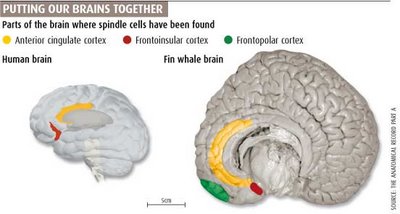Burning archangels

However hard the actual doing of it, the concept of "saving the coral reefs" is quite easy to sell. A combination of arguments centering on such things ecosystem services and human livelihoods must have been cobbled together thousands of times, and often brilliantly.
Ethical arguments, stated in no nonsense non-emotive ways, often make it into the mix as well. But cite beauty and wonder as fundamental reasons for protecting reefs and you may be taken less seriously...unless you demonstrate what that adds up to in tourist dollars. What is the marginal utility of beauty and non-instrumental abundance?
Even more "out there" would be an argument suggesting that one should allow for the possibility that the beauty of reefs could be of value to other animals.
You what?
This is not a question of sentimentality. We should keep a very clear eye on what we know about both the extraordinary capacities of other intelligent animals such as our near cousins chimps and bonobos, and their real limits. There are things that careful observation of them can help us understand about ourselves; and there are things that it cannot. Primatologists like Frans de Waal are very helpful in this regard on both the horror and the hope, and we shouldn't be too starry eyed about, for example, bonobos.
Nevertheless, to go out on a creaking limb, let us consider what is still being learned about cetacean consciousness and emotion and what, if not exterminated, it could portend.
The immediate prompt for this post is Andy Coghlan's article Brainy Whales Get Emotional which reports that spindle neurons found in whales may in some cases be better developed than they are in humans. (Spindle neurons are specialised brain cells thought to process emotions. Bodies of them occur in the parts of the human brain linked with social organisation, empathy, speech, intuition about the feelings of others and rapid "gut" reaction). The article features a remarkable picture of human and fin whale brains, indicating what may be comparable or even better development of these functions in the latter.
Apologies to Andy Coghlan and the heavy hitting cetacean biologists if they find it embarrassing that their sober research and communication prompts wild imaginings on my part. And yes, in case you this line of argument strikes you as mad, I know that while many cetaceans visit tropical waters they seldom come close to a reefs, that their eyesight and other senses are different from humans, and that it may be pushing it to suggest that there could be an "aesthetic" aspect in any way that humans recognise to their use and appreciation song, never mind anything else. (And yes, gut reactions are not always a good thing. Look at George W. Bush also here).
"They say the sea is cold..."
1 Comments:
Beautiful nature to an average observer means healthy nature. Which is good to the animals living there, say the reef.
Post a Comment
Subscribe to Post Comments [Atom]
<< Home